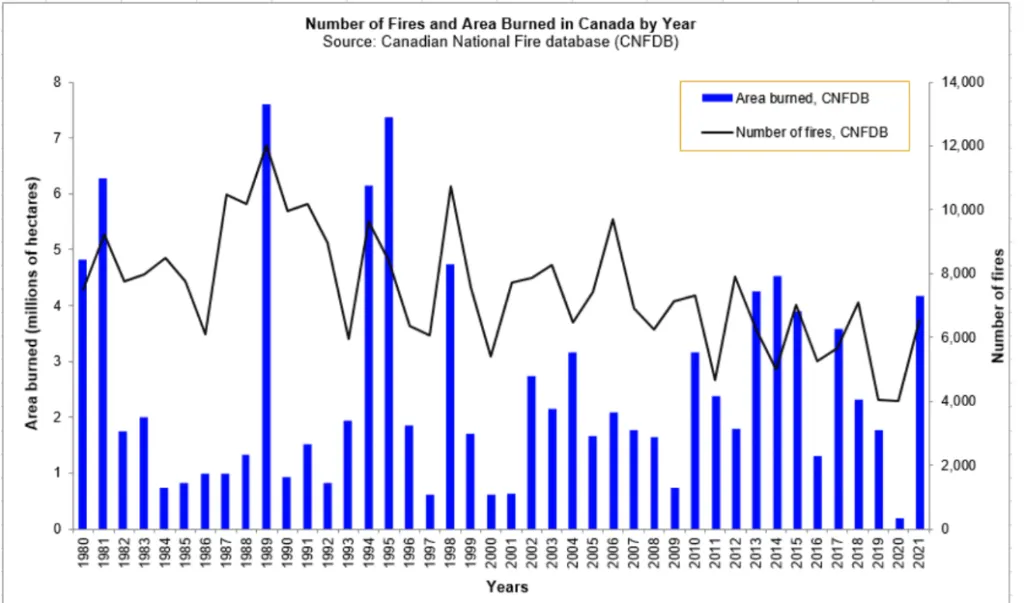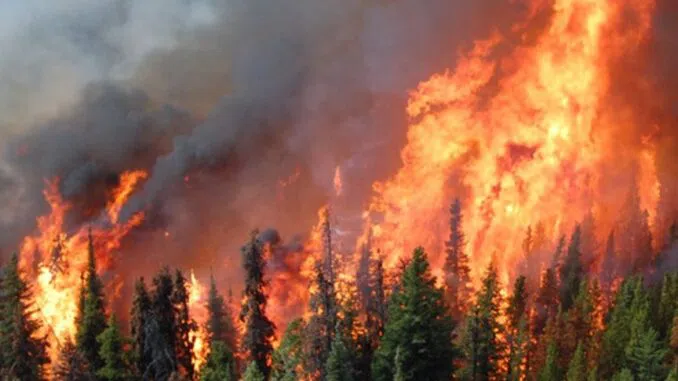Uncover the truth behind Canada’s recent wildfires as we explore the arrest of arsonists and challenge the mainstream media’s insistence on blaming climate change for the devastating fires. Discover the surprising statistics from the Canadian National Fire Database that paint a different picture.
The Blame Game: Unraveling the Truth about Canada’s Wildfires
As Canada grapples with a series of destructive wildfires across its western, central, and eastern regions, the mainstream media seems determined to attribute these disasters solely to climate change. However, mounting evidence points to a different culprit: arsonists. In this article, we delve into the arrest of multiple arsonists and challenge the prevailing narrative propagated by the media.
New York Mayor Urges Citizens to Reduce Meat Consumption for Climate Change
Arsonists Unmasked: The Shocking Truth
Recent reports have shed light on the arrest of arsonists in connection with intentionally set fires across various Canadian provinces. The Royal Canadian Mounted Police (RCMP) have apprehended several individuals charged with arson, including cases in Nova Scotia, Yukon, British Columbia, and Alberta. While the motivations behind these acts remain unclear, their impact has been devastating.
One notable case involves John Cook, an Albertan who has been charged with ten counts of arson. Cook stands accused of igniting a series of wildfires in and around Cold Lake, a small hamlet near Edmonton. Additionally, Cook has been charged with setting fire to the Church of Jesus Christ of Latter-Day Saints in Cherry Grove, Alberta, further highlighting the severity of his actions.
Will There Be Lockdowns Around the World due to Climate Change
Debunking the Climate Change Narrative https://t.co/mijjBfqKMy
— The Carnivore Den (@CarnivoreDen) June 13, 2023
Questionable Media Narratives
Despite the arrest of multiple arsonists, mainstream media outlets continue to propagate the notion that climate change is the primary cause of Canada’s wildfires. The Canadian Broadcasting Corporation (CBC) reported a study linking the rise in extreme wildfires directly to emissions from oil companies. Another CBC headline claimed that Canadian forest fires were yet another costly climate disaster. Global News echoed these sentiments, quoting experts who attributed the increase in wildfires to climate change.
Contradictory Statistics: The Reality Check
However, statistics from the Canadian National Fire Database tell a different story. Contrary to the mainstream narrative, the data reveals a decrease in wildfires across Canada in recent years, with the peak occurring in 1989. This evidence challenges the claim that climate change is the sole driver behind the escalating wildfire risks in the country.

Setting the Record Straight
The ongoing wildfires in Canada have sparked widespread concern, prompting citizens to question the root causes of these devastating events. While the mainstream media seems fixated on blaming climate change, it is essential to consider all the available evidence. The arrest of arsonists, as well as the contradicting statistics from the Canadian National Fire Database, indicate that climate change is not the sole factor driving these wildfires.
It is crucial to acknowledge the complexity of environmental disasters and resist the temptation to simplify them into a single cause. By recognizing the role of arsonists in Canada’s wildfires, we can better understand the true nature of these tragedies and take appropriate measures to prevent and mitigate future incidents.
In a world where sensationalism often prevails, it is our responsibility as consumers of information to critically analyze the narratives presented to us. By seeking a more nuanced understanding of complex issues like the Canadian wildfires, we can foster informed discussions and work towards effective solutions that address the multifaceted challenges we face.









In a world where sensationalism often prevails, it is our responsibility as consumers of information to critically analyze the narratives presented to us.